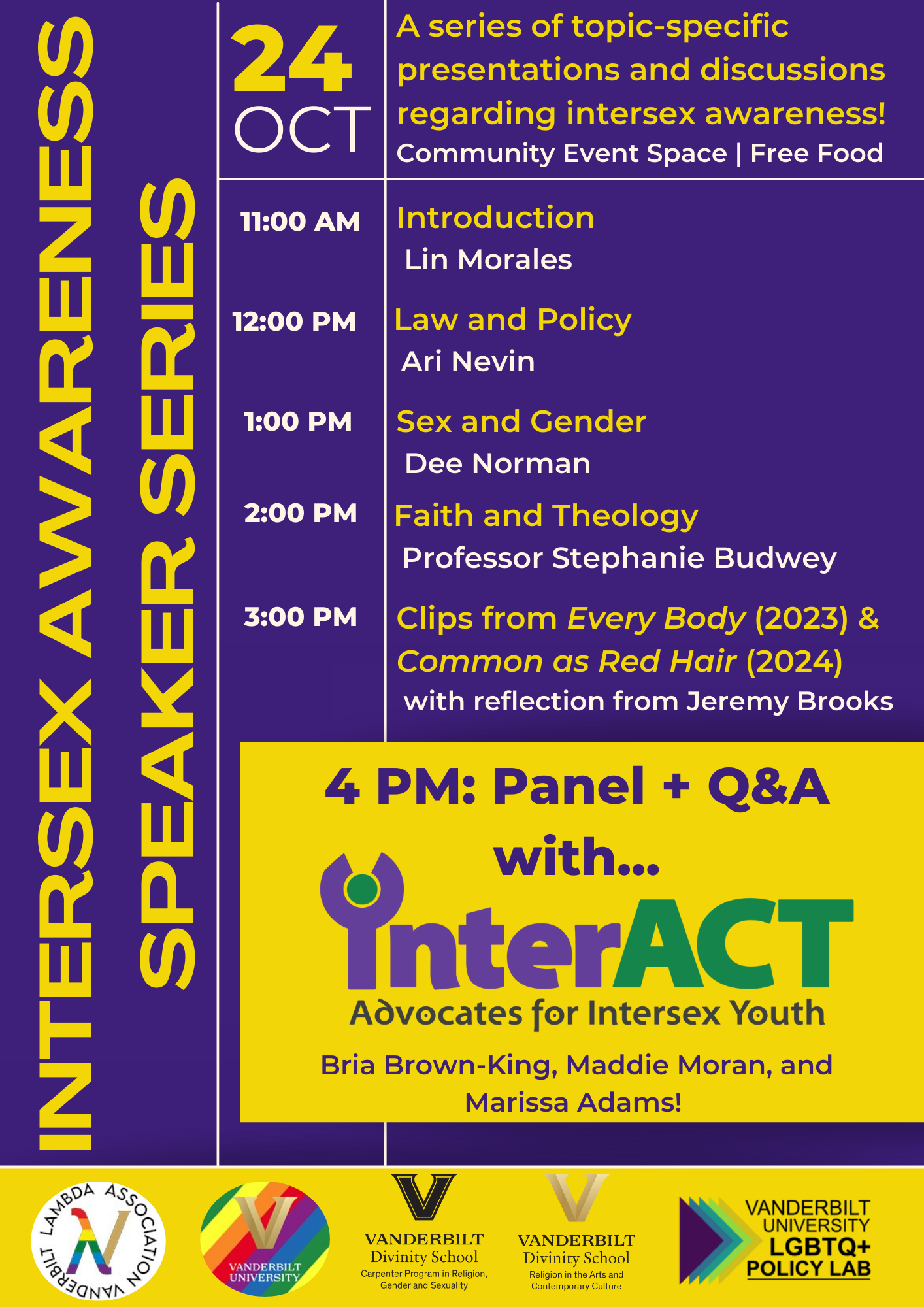
Individuals in a population that is often overlooked or misunderstood shared their lived experiences during a speaker series on the Vanderbilt campus Oct. 24 to commemorate Intersex Awareness Day.
Intersex people are born with differences in sex traits or reproductive anatomy. The phenomenon is as common as having red hair or green eyes, affecting almost 2 percent of the population.
Lin Morales, a junior in the College of Arts and Science and co-president of the Vanderbilt Lambda Association, helped organize what he hopes will become an annual event. He was inspired by a course he took called Intersex in Christian Traditions: Perspectives from Science, Law, Culture and Theology, taught by the Divinity School’s Stephanie Budwey.
“Our class had amazing discussions that increased my understanding about the challenges for intersex people,” said Morales, who is majoring in political science and studio art with a minor in religious studies. “I’m trans myself and found many connections between trans and intersex and other gender identities. All of us are impacted negatively by policies and laws that do not affirm our identities.”
Speakers at the event included Morales, who gave introductory remarks; Ari Nevin, a senior who discussed law and policy; Dee Norman, a junior who spoke on sex and gender; and Budwey, assistant professor of the history and practice of Christian worship and the arts, whose topic was faith and theology. There were also three speakers from interACT, a national advocacy organization for intersex youth: Bria Brown-King, Maddie Moran and Marissa Adams.
Jeremy Brooks McKinnon led a reflection following the screening of the narrative short film As Common as Red Hair and the new documentary Every Body. Brooks McKinnon is a master of divinity candidate who is completing his final semester.
Morales emphasized that the speaker series has set a precedent for intersex advocacy in the future, with plans underway to hold another campus event next year. He had reached out to Budwey last spring about bringing together people and resources from across campus to increase awareness and knowledge on intersex issues.
“Lin was moved and energized to begin planning for an event in October,” said Budwey, author of Religion and Intersex: Perspectives from Science, Law, Culture and Theology. “The reality is that many folks do not know what intersex is or have a grave misunderstanding about the definition.
“People are made to feel bad about themselves because they don’t fit into a particular understanding of sex and/or gender. Rather than embracing that diversity, individuals are forced to feel very shameful about their bodies.”
Budwey noted that infants and young children around the world have undergone medically unnecessary surgeries to try to fit them into certain understandings about sex and gender, and there can be severe repercussions.
The Intersex Awareness Speaker Series is co-sponsored by the Carpenter Program in Religion, Gender and Sexuality and its Queer Faith, Policy and Liberation Cohort; Vanderbilt Lambda Association; LGTBQ+ Policy Lab; K.C. Potter Center for LGTBQI Life; and Religion in the Arts and Contemporary Culture program.
“We hope to create more welcoming spaces, awareness and knowledge about gender and sexual identities, and to highlight those in order to bring greater inclusion and belonging to our world,” said Rachel Heath, assistant director of the Carpenter program.
For more information about the speaker series, email Rachel Heath.